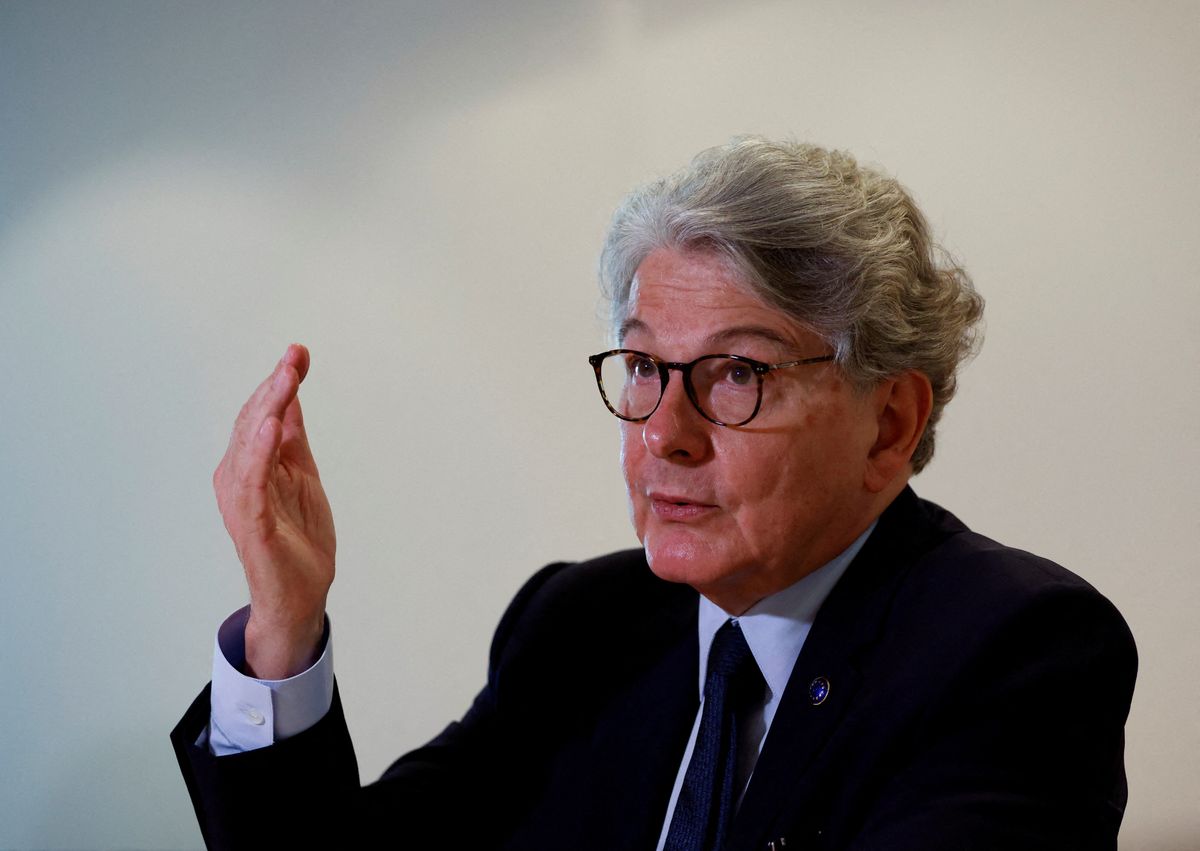The EU and Japan collaborate in the semiconductor industry
Semiconductors, those little powerhouses found in everything from our cars to our smartphones, are also indispensable in training artificial intelligence (AI) models.

A few minutes every morning is all you need.
Stay up to date on the world's Headlines and Human Stories. It's fun, it's factual, it's fluff-free.
The backstory: Semiconductors, those little powerhouses found in everything from our cars to our smartphones, are also indispensable in training artificial intelligence (AI) models. As AI keeps getting more advanced, there's a growing need for powerful computing abilities to support its applications. That's where AI chips come in. Just take a look at OpenAI's ChatGPT, which relies on these kinds of chips to work its magic.
But with these chips becoming more advanced, there’s a lot of global competition heating up in the tech sector. Take the US, for example. The world's top economy is determined to maintain a competitive edge over China when it comes to this advanced tech. It’s also concerned with the ways it might be put to use in military applications. So, the country put some restrictions on exporting advanced chips and chipmaking equipment to Chinese companies last year. Not long after, other countries like the Netherlands and Japan made some similar restrictions on tech exports to China.
On top of that, the EU is looking to reduce its reliance on China, or “de-risk,” by diversifying its partnerships. So it’s fostering closer relationships with Japan and other countries. In April, the EU also approved a €43 billion (US$46 billion) plan to boost its own semiconductor industry.
More recently: Japan, which has lost market share in the semiconductor industry over the last few years, is looking to make a comeback by offering subsidies for companies like TSMC, Rapidus and Samsung.
Last November, the government-backed chipmaker Rapidus secured 70 billion yen (US$500 million) in funding. And in April, Japan was also reportedly finalizing a plan to fund it an extra 300 billion yen (US$2.27 billion). The government also offered Taiwan Semiconductor Manufacturing Co (TSMC) a 476 billion yen (US$3.6 billion) subsidy, which practically covered half the costs of building a new factory in Japan. The subsidies kept flowing in May, with the country reportedly arranging potential grants of around 15 billion yen (US$104 million) for South Korea’s Samsung for chip facilities it was considering building near Tokyo. And last week, a government-backed fund swooped in and wanted to acquire semiconductor materials maker JSR for 903.9 billion yen (US$6.3 billion).
The development: According to EU industry chief Thierry Breton, the EU and Japan are joining forces to boost cooperation in the semiconductor industry. He’s set to talk with influential Japanese ministers, covering cooperation on everything from undersea cables to cybersecurity and, of course, semiconductors. As part of their collaboration, they'll keep close eyes on the chip supply chain and make it easier for researchers and engineers to share knowledge.
The EU is also pledging to support Japanese semiconductor companies wanting to set up shop within its borders. Breton made it clear that AI is a big deal in these discussions and more talks will be lined up for next year in Brussels. The EU is also planning to establish an EU-Japan Digital Partnership council to discuss things like quantum and high-performance computing.
Key comments:
"We believe that it's extremely important to secure the supply chain of semiconductors," said EU industry chief Thierry Breton to Reuters in Tokyo.
"I will engage with [the] Japanese government … on how we can organize our digital space, including AI based on our shared value," said Breton in a video posted on Twitter last Sunday.
"Semiconductors are going to be a critical component for the development of new leading-edge technologies such as AI, digital industries and in healthcare," said Minister of Economy, Trade and Industry Yasutoshi Nishimura at a news briefing last year.
Konnichiwa! 🎌
— Thierry Breton (@ThierryBreton) July 2, 2023
I am very glad to be back in Tokyo as part of my #G20DigitalTour
In 1984, I came here to test the very first #AI application in the world with Pr. Kazuhiro Fuchi
And now, AI will be high on the agenda together with 🇯🇵 government on #connectivity, #HPC & #quantum pic.twitter.com/nvENvmDQ8o




Comments ()